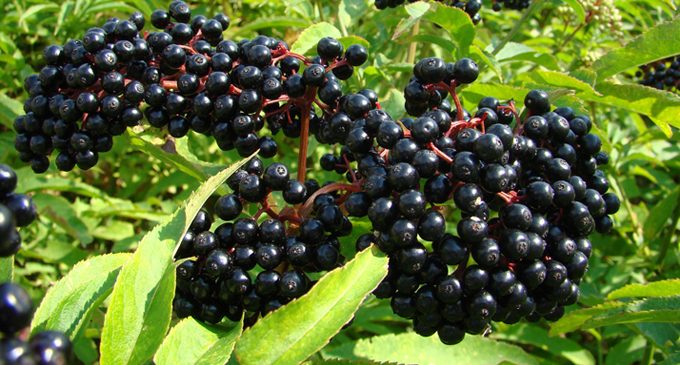Commentary: Cold season is upon us; don’t forget the elderberry!

By Elisha Covington
Cold season is upon us; don’t forget the elderberry!
‘Tis the season for coughing, sneezing, running noses and scratchy throats. The change of the season brings on the cold season, and many of us are already feeling the shift.
Fall allows us to prepare for the winter season, to be able to nourish our immune systems so that the cold days won’t be filled with colds and other illnesses. It is important to start preparing to build and support our immune systems during this vulnerable time. As the weather continues to cool down, we tend to spend more time indoors. Spending more time inside also allows germs to spread easier, which is the main cause for illnesses and not because of the weather itself.
There are many herbs and nutrients that are supportive during this time, but elderberry is one that remains as a staple in my household. The beauty of elderberry is that the entire plant can be used: berries, flowers, leaves and even the bark.
Elderberry bushes can be found throughout areas of the U.S. and are generally in abundance between August and October. Black elder or European elder (Sambucus nigra, the full scientific name) is most commonly used for medicinal purposes and research has proven its properties combat inflammation, viruses and tumors. One study suggested that the elderberry extract called “Sambucol” can shorten the duration of the flu by up to three days.
Elderberries are an excellent source of vitamin C. Vitamin C is known to fight infection by strengthening the immune system. This makes elderberry a great candidate to be used year-around and not just during illness. It is also a very good source of vitamin A (beta-carotene), which plays a critical role in maintaining healthy vision, healthy skin, encouraging healthy cell growth and reducing inflammation.
Elderberries may help relieve nasal & sinus congestion by reducing the swelling in mucous membranes. Elderberries are also rich in fiber, iron, potassium and vitamin B6.
The berries of the elder plant are black or very dark blue and naturally have a sharp, sweet flavor that makes them ideal for desserts, jams, jellies, spreads, and syrups. While most elderberries (when raw) are toxic and should be used with caution, cooking the berries properly before consumption is always recommended and will help avoid the implicit risks, like vomiting and diarrhea.
A way to avoid these potential risks is to purchase a high-quality brand elderberry syrup or tonic available at most health food stores. Because it is relatively easy to make, you can try making your own at home, which I opt for because it allows me to control the level of sweetness and it saves me money in the long run.
Ingredients are simple and can include: dried elderberries, water and raw honey. There are many recipe variations that can be found online. Just always remember to cook those berries!
It is not recommended for pregnant or breast-feeding women, those with autoimmune disease because it may stimulate the immune system, those with organ transplants and those taking medications.
As always, you should consult with your health care provider before using elderberry.
Happy autumnal equinox! Be well.
Elisha Covington is an avid reader and a mother of a vivacious 6 year old. She’s passionate about how and why people have unique relationships to food and wellness and how their environments impact these relationships.














